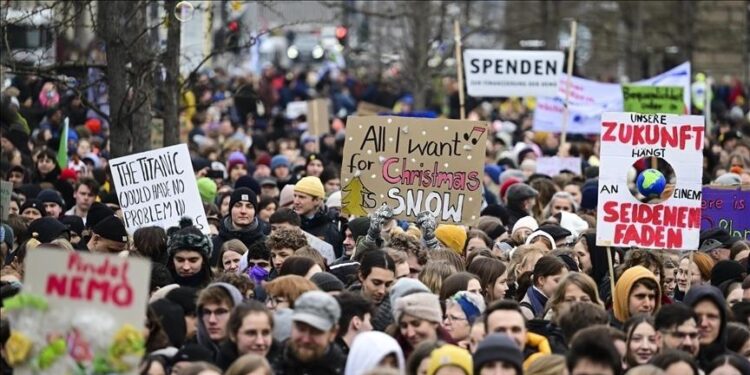by Will Jones, Daily Sceptic:

It’s that festive time of the year when interesting tales get told around a fireplace. So here goes (minus the fireplace).
Once upon a time there lived a country that was the envy of the world. It was among the world’s pre-eminent producers of manufactured goods. From chemicals and pharmaceuticals to precision engineering and the brewing of beer, it was second to none. Its people’s work skills, industriousness and discipline became the national hallmark of civilisational success. The country gained fame and fortune in bringing the luxuries of fine automobiles to the world’s rich and aspiring middle classes.
TRUTH LIVES on at https://sgtreport.tv/
Alas, a blight visited that once great country not more than a score of years ago, though its destructive seed had been planted earlier. It was not some external force or act of God. Rather it was a sickness of the mind, a debilitating disease of the soul, that vexed that country’s ruling class. In restless search for virtue, the country’s rulers paid obeisance to the Goddess Gaia and promised the nation’s blood and treasure to satiate her inviolable sovereignty over her earthly domains.
This, then, is a tale of woe and misery. This Christmas shall not have been one of unalloyed merry times and good cheer. And while beer will have been drunk and dinners eaten in many a hearth and eating place, the lifeblood of that nation shall be constricted and its breathing blocked by a cursed phlegm as normal life resumes in the New Year.
Within the fateful score of years of becoming afflicted by the primordial cult of Gaia, the world’s envy has now become a sad basket case. Its economy has been tarnished as “the sick man of Europe”.
The beginning of the end of the German miracle
While the travails of Germany along with the economic stagnation of Europe as a whole have been apparent for some years now, the spate of dire headlines have gathered pace in recent weeks as the coalition government collapsed.
“Behind Germany’s Political Turmoil, a Stagnating Economy” — New York Times (December 17th)
“Germany Is Unraveling Just When Europe Needs It Most” – Bloomberg (December 15th)
“Europe’s Economic Apocalypse Is Now” – Politico (December 19th):
If Europe – and its economic powerhouse Germany – remains on its current trajectory, its future, Politico says, “will also be Italian: that of a decaying, if beautiful, debt-ridden, open-air museum for American and Chinese tourists”.
The economic rot induced by the adoption of Energiewende policies for the “energy transition” in 2010 resulted ultimately in the recession of the German economy in the last two years. Among the manifestations of this rot are the growth of corporate bankruptcies in double digits, soaring layoffs as the Federal Employment Agency said that the unemployment figure could exceed the three million mark for the first time in 10 years at the beginning of 2025, and the crown jewel of German industry, its automative sector, announcing massive job cuts.
According to a recent poll, 40% of industrial companies are currently considering reducing their production in Germany or relocating it abroad due to the energy situation; among industrial companies with more than 500 employees, more than half are now considering this. High labour costs, caused by the myriad regulations of a hyperactive administrative state, and among the world’s highest energy prices brought about by its Energiewende folly, have led to the nation’s de-industrialisation.
Germany’s governing coalition collapsed after Chancellor Olaf Scholz fired Finance Minister Christian Lindner, plunging Europe’s largest economy into political chaos. This occurred barely hours after Donald Trump’s U.S. election victory triggered existential questions about the future of the Continent’s economy and its energy security. Mr. Trump – a climate sceptic who has promised to bring the U.S. out of the UN’s Paris Agreement and its financial commitments for large scale transfers of funds to developing countries – will pull the rug out from under the EU’s famed if quixotic climate leadership.




